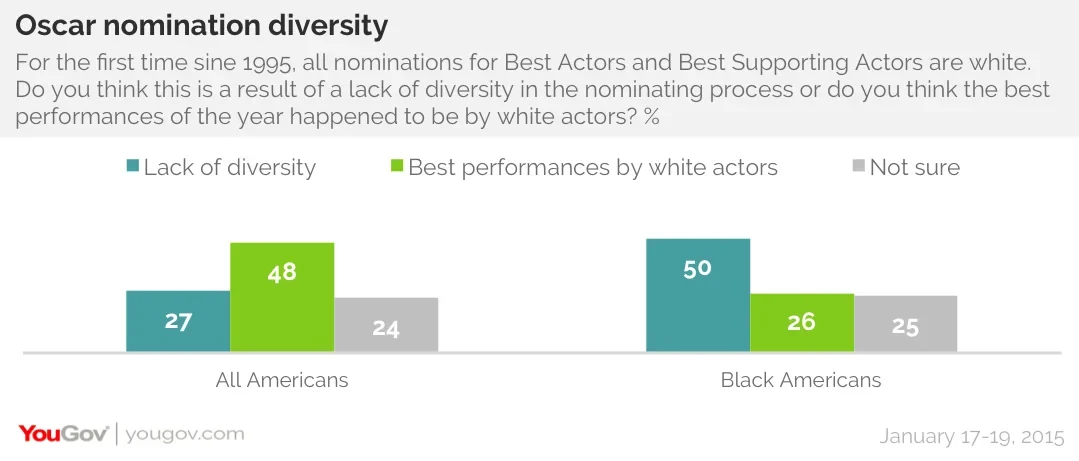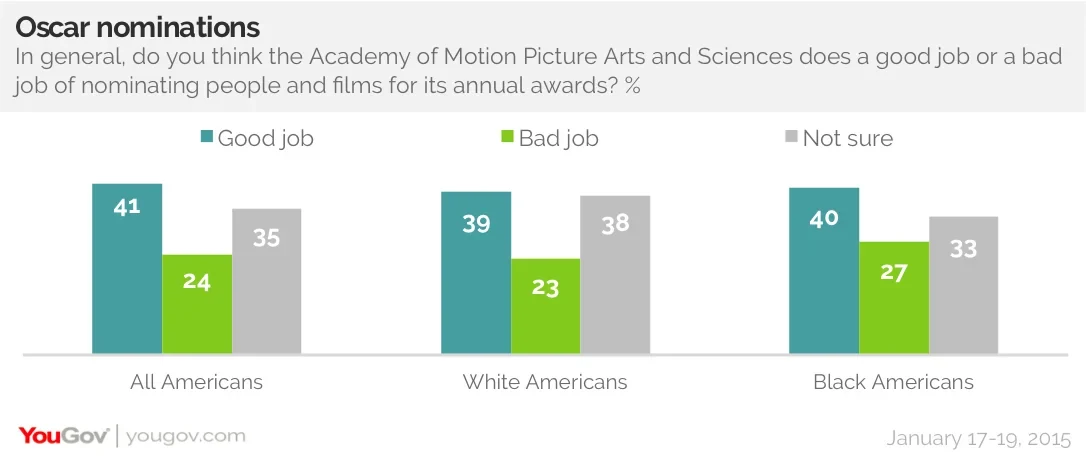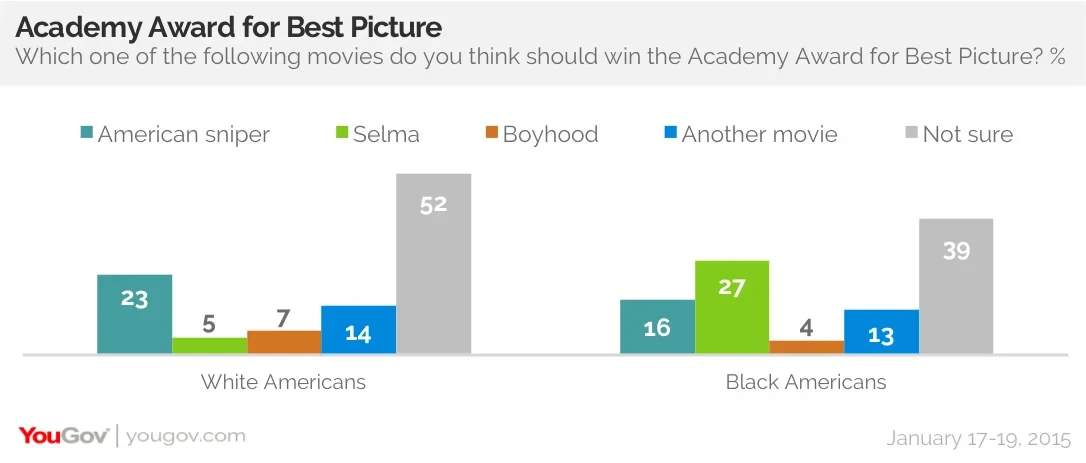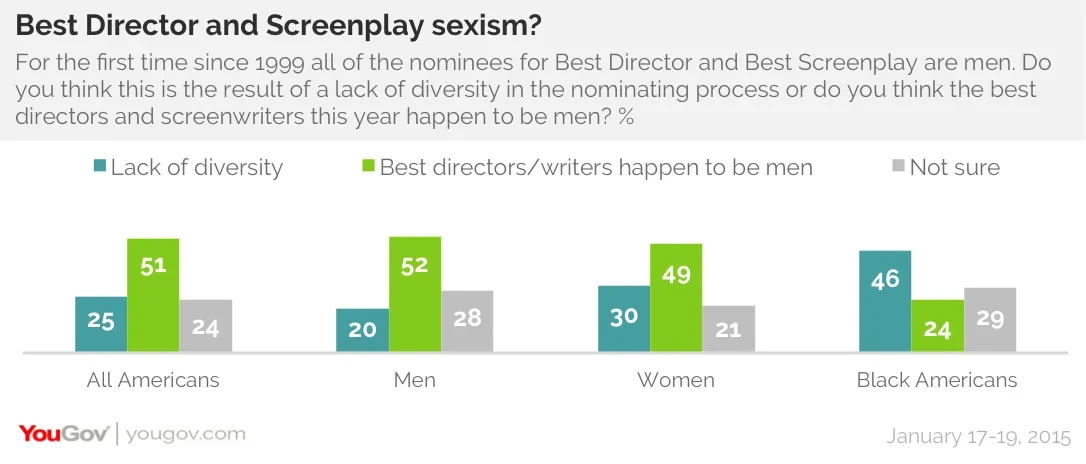This year's Oscar choices are generally welcomed, but concerns about the diversity of nominations do exist
Americans generally think the Academy of Motion Picture Arts and Sciences does a good job when it chooses the Oscar nominees for the best films, directors, writers and actors each year. But in this week’s Economist/YouGov Poll the lack of diversity in this year’s nominees stands out as a criticism for many African-Americans, half of whom agree that the lack of minority representation among the acting Oscar nominees wasn’t something that just happened, but an indication of problem in the process itself.

This was the first year since 1995 when all the acting nominees were white.
But Americans can like or dislike the choice for nominated films and persons for more reasons than race. And in general, whites and blacks agree that the Academy does a good job when it comes to choosing the nominees.

Generally, blacks are more attentive to the Academy and to movies in general. A third of blacks, but only a quarter of whites, say they follow the Academy Awards closely. 38% of African-Americans see movies in a theater at least once a month, twice as many as the 19% of whites who report this.
Racial differences also show up when Americans are asked which film should win the Oscar for Best Picture this year. Whites overwhelmingly choose American Sniper, while African-Americans choose is Selma, about the 1960s fight for voting rights, though Americans Sniper comes in second.

But about half the public don’t know which of the nominated films to root for.
In the Economist/YouGov Poll conducted at this time last year, 12 Years a Slave was the first choice for Best Movie – and it did win the Oscar.
American Sniper is not the most-seen of the Best Picture nominees – at least not yet -- although it’s the one the largest number of Americans have heard of. In the poll conducted the weekend after the nominees were announced, 75% had heard of American Sniper, far more than the 44% who had heard of The Grand Budapest Hotel. But more people reported having seen the latter film, which has already been made available on DVD and video streaming.
For most Americans, the Oscars are a contest for films they haven’t seen. More than six in ten say they have seen none of the movies with either a Best Picture or an acting nomination, and the only other film viewed by as many Americans as The Grand Budapest Hotel was Gone Girl, which has a Best Actress nomination for Rosalind Pike. Gone Girl, like The Grand Budapest Hotel, is now on DVD.
As is usually the case, Americans choose people they know when asked who should win various acting awards. So it may be no surprise that Bradley Cooper (American Sniper), Meryl Streep (Into the Woods), and Robert Duvall (The Judge) are at the top of the list when Americans are asked who should win Best Actor, Best Supporting Actress and Best Supporting Actor. But half or more had no opinion on these questions.
Three women run close in the contest for the Best Actress award: Reese Witherspoon (Wild), Julianne Moore (Still Alice), and Rosamund Pike (Gone Girl). But the largest number found for any of the acting category questions (60%) say they aren’t sure which of the nominees for Best Actress to support.
It has been pointed out that this is the first time since 1999 that no women have been nominated for any of the directing or writing awards. Like their thinking about minority representation in the acting awards, Americans generally feel that this year the best directors and screenwriters “happen to be men.” Both men and women agree.

African-Americans are more likely than women to sense a problem with the lack of gender diversity. By nearly two to one, they disagree that the best directors and screenwriters this year “happen to be men.”
Economist/YouGov poll archives can be found here.








